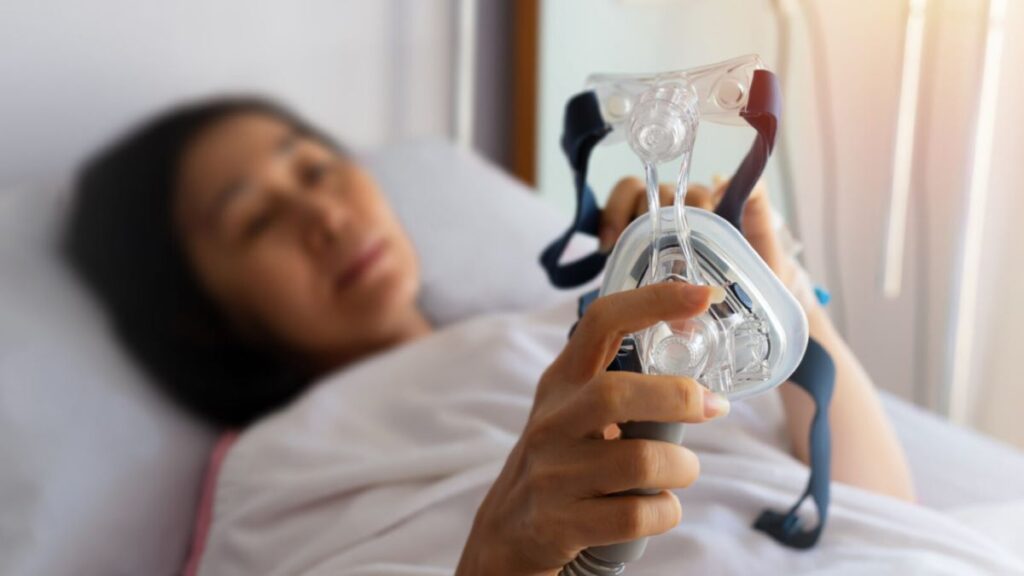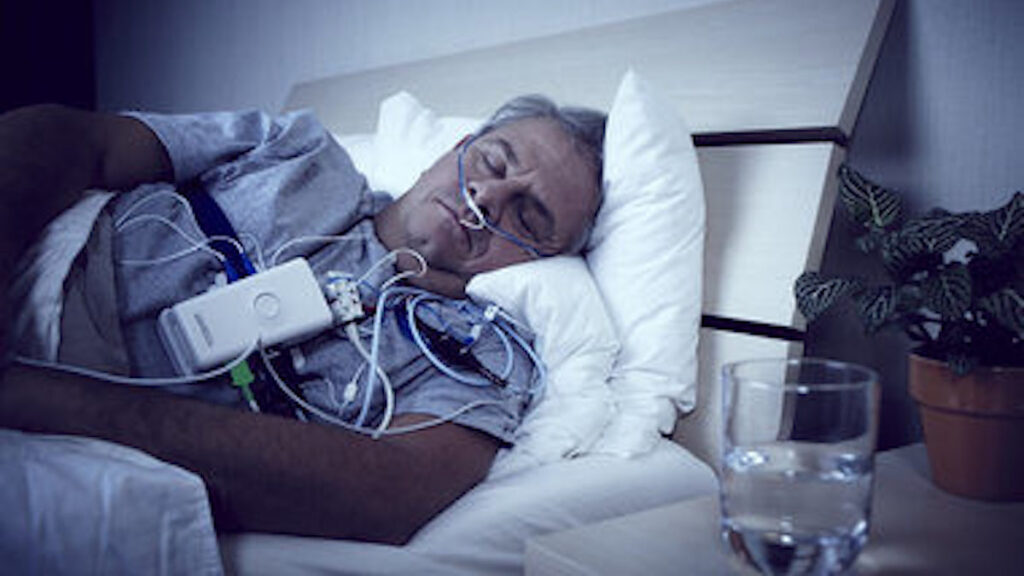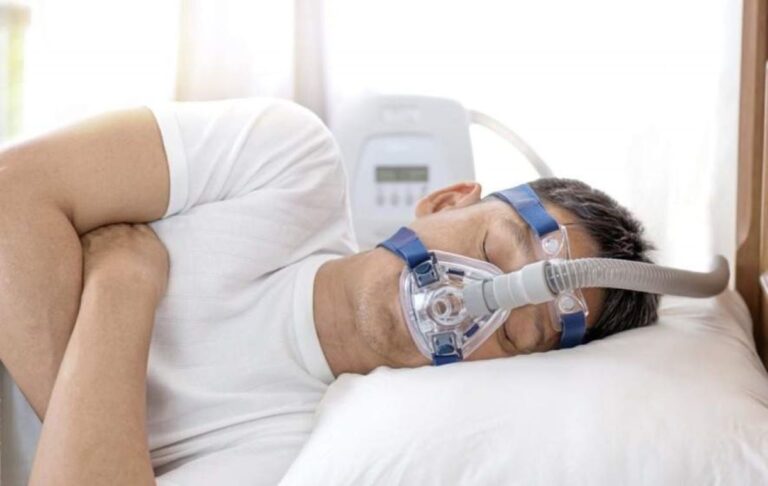What is Sleep Testing and Why is it Important?
Sleep testing provides a comprehensive diagnostic assessment of your breathing, heart rate, oxygen levels, and sleep patterns throughout the night. This medical procedure identifies underlying sleep disorders that may be disrupting your rest and impacting your overall health.
Sleep testing Melbourne serves as the gold standard for diagnosing conditions that often go undetected for years. Without proper diagnosis, these disorders can lead to serious health complications and significantly diminish quality of life.
Common sleep disorders identified through testing include:
- Obstructive Sleep Apnoea (OSA) – repeated breathing interruptions during sleep caused by airway blockage
- Snoring disorders – ranging from simple snoring to upper airway resistance syndrome
- Sleep-related breathing disorders – abnormal respiratory patterns affecting oxygen saturation
- Bruxism – teeth grinding or clenching during sleep that can damage dental structures
The relevance of sleep testing services in Melbourne has grown substantially as awareness of sleep health increases. With busy lifestyles and high-stress environments common in metropolitan areas, Melburnians face elevated risks for sleep disorders. Local sleep testing facilities now offer both traditional in-lab studies and convenient home-based alternatives, making diagnosis more accessible than ever.
Early detection through sleep testing allows for timely intervention, preventing the progression of conditions linked to untreated sleep disorders such as cardiovascular disease, diabetes, and cognitive decline.
What Types of Sleep Tests Are Available in Melbourne?
Polysomnography Melbourne clinics offer comprehensive in-lab testing that monitors brain waves, eye movements, muscle activity, heart rhythm, breathing patterns, and blood oxygen levels throughout the night. This gold-standard diagnostic tool requires an overnight stay in a sleep laboratory where trained technicians attach multiple sensors to your body and observe your sleep in real-time.
Home sleep study Melbourne services provide a practical alternative through portable monitoring devices. These compact units track essential parameters including heart rate, respiratory rate, breathing effort, oxygen saturation, and sleep stages whilst you rest in your own bed. The device arrives pre-programmed and ready to use, eliminating the need for complex setup or technical expertise.
Key Differences Between Sleep Test Types
The distinction between in-lab and home-based methods centres on three factors:
- Environment: Polysomnography requires sleeping in an unfamiliar clinical setting with wires and monitoring equipment, whilst home sleep tests allow you to maintain your regular bedtime routine
- Data capture: In-lab studies record more comprehensive physiological data with continuous technician supervision, whereas home tests focus on core respiratory and cardiac metrics
- Cost and accessibility: Home sleep tests typically cost around $150 with appointments available within 1-2 weeks, compared to higher fees and longer waiting periods for laboratory-based polysomnography
Both methods generate data analysed by qualified Australian-based Sleep Physicians who interpret results and recommend appropriate treatment pathways.
Who Should Consider Getting a Sleep Test?
Do you wake up feeling exhausted despite spending eight hours in bed? Sleep disorder symptoms often go unrecognised, yet they significantly impact daily life and long-term health. Recognising when to get sleep tested can be the first step toward better rest and wellbeing.
Signs of Obstructive Sleep Apnoea
Obstructive sleep apnoea signs manifest in various ways during both night and day. If you experience any of these symptoms, testing may be necessary:
- Loud, persistent snoring that disrupts your partner’s sleep
- Gasping, choking, or pauses in breathing during the night (often reported by bed partners)
- Waking up feeling unrefreshed regardless of time spent sleeping
- Morning headaches that fade as the day progresses
- Excessive daytime fatigue or falling asleep during routine activities
- Teeth grinding or clenching (bruxism) during sleep
These symptoms are often associated with obstructive sleep apnoea, a serious condition that requires medical attention.
Health Conditions Linked to Sleep Disorders
Certain health conditions increase the likelihood of sleep disorders. Patients with diabetes, high blood pressure, or obesity (BMI above 35) face elevated risks of obstructive sleep apnoea. The relationship works bidirectionally—untreated sleep disorders can worsen these conditions, creating a cycle that compromises cardiovascular health and metabolic function.

Age and Gender Factors
Age and gender also play roles, with men over 40 and post-menopausal women showing higher prevalence rates. If you recognise multiple symptoms or have underlying health concerns, consulting a healthcare provider about sleep testing becomes essential.
How Does a Home Sleep Study Work?
The home sleep study process begins with online booking and payment, allowing you to secure your Melbourne sleep test procedure within 1-2 weeks. You’ll collect a pre-programmed device from your chosen clinic, eliminating the need for complex setup instructions or technical knowledge.
The overnight sleep monitoring captures:
- Heart rate and respiratory rate patterns
- Breathing patterns and respiratory effort
- Blood oxygen saturation levels
- Sleep stages and body position
- Snoring intensity and frequency
You wear the compact device to bed as you normally would, maintaining your regular bedtime routine in the comfort of your own bedroom. The equipment records your vital signs throughout the night without requiring constant adjustment or supervision. Most devices use simple chest straps, finger sensors, and nasal cannulas that attach comfortably during sleep.
The next morning, you return the device to the clinic where staff upload the recorded data. Australian-based Sleep Physicians then analyse your overnight sleep monitoring results, examining breathing disruptions, oxygen desaturation events, and sleep quality indicators. This comprehensive analysis identifies the presence and severity of conditions like obstructive sleep apnoea.
Results typically arrive within 2-3 weeks, accompanied by a detailed report explaining your sleep patterns, any diagnosed disorders, and recommended treatment pathways. Your healthcare provider reviews these findings with you to determine the most appropriate next steps.
What Are the Benefits of Choosing a Home Sleep Study?
Home sleep studies offer comfort and familiarity that in-lab testing simply cannot match. You sleep in your own bed, follow your normal bedtime routine, and wake up in familiar surroundings—factors that often lead to more accurate results since you’re not adjusting to a clinical environment with sensors and staff nearby.
The cost-effective sleep test advantage is substantial. At approximately $150, home sleep studies cost significantly less than in-lab polysomnography, which can run into hundreds or even thousands of dollars. This price point makes diagnostic testing accessible to more Melbourne residents who might otherwise delay seeking help for sleep issues.
Convenience of home testing extends beyond the physical comfort. Appointment availability typically runs within 1-2 weeks, compared to potentially months-long waiting lists for hospital-based sleep labs. You collect the pre-programmed device at your convenience, use it that night, and return it the following day—no overnight hospital stays or time off work required.
The home sleep study benefits also include reduced anxiety. Many people feel intimidated by clinical settings, which can ironically worsen sleep quality during testing. Your bedroom eliminates this psychological barrier, allowing for more natural sleep patterns that better reflect your typical night’s rest and provide physicians with more representative data for diagnosis. Furthermore, research has shown that home sleep studies can produce comparable results to traditional lab tests when it comes to diagnosing conditions like sleep apnea, as highlighted in this study. Read more about sleep study Melbourne cost: what affects the final price?
What Treatment Options Are Available After Diagnosis?
Obstructive sleep apnoea treatment Melbourne clinics offer different pathways based on your diagnosis severity. Mild to moderate cases typically respond well to a Mandibular Advancement Splint (MAS)—a custom-fitted oral device that gently repositions your lower jaw forward during sleep. This simple adjustment opens your airway and reduces breathing interruptions throughout the night.
Severe obstructive sleep apnoea requires more intensive intervention. CPAP therapy options deliver continuous pressurised air through a mask, keeping your airway open whilst you sleep. Whilst CPAP machines are highly effective, they require consistent nightly use and an adjustment period to become comfortable with the equipment.
Your treatment plan extends beyond devices:
- Weight management: Losing 10% of body weight can significantly reduce apnoea severity
- Sleep position training: Side sleeping often decreases breathing obstruction
- Alcohol limitation: Avoiding alcohol 3-4 hours before bed prevents throat muscle relaxation
- Sleep hygiene improvements: Consistent sleep schedules and bedroom optimisation support better rest
Many patients combine device therapy with lifestyle modifications for optimal results. Your sleep physician will recommend the most appropriate treatment combination based on your specific diagnosis, severity level, and individual health profile. Some patients graduate from CPAP to MAS therapy after successful weight loss, demonstrating how treatment can evolve with your progress.

Conclusion
Choosing sleep test Melbourne services requires careful consideration of five key questions: What type of test suits your needs? Who should get tested? How does home testing work? What benefits does it offer? What treatments follow diagnosis? These questions guide you towards informed decisions about your sleep health.
Sleep testing in Melbourne provides accessible pathways to diagnosis, whether through convenient home studies or comprehensive in-lab assessments. The symptoms you experience—from persistent snoring to daytime exhaustion—deserve professional evaluation. Book a consultation with a qualified sleep specialist to discuss your symptoms and determine the most appropriate testing method. Your path to better sleep and improved health starts with asking the right questions and seeking expert guidance tailored to your individual circumstances.


